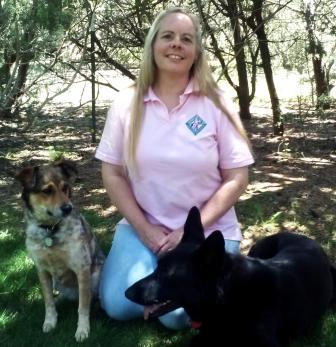
Your dog needs a job
This is often one of the first things out of my mouth when I am called in for a consultation about dogs and behavior problems. It is often met with incredulousness. “How in the world can he need a job? He has everything he possibly could need. He eats better than I do. He sleeps on my bed, has tons of toys and I cater to his every wish.”
This only solidifies my point. Imagine what it would be like if you had nothing to do, no purpose. You would start out bored, then develop restlessness and anxiety, and eventually become neurotic.
Think about it. Dogs were domesticated to do jobs. First they were hunters, then they helped manage livestock, and then, because of their amazing capabilities, we found all sorts of ways to work with them on a variety of tasks. Their very DNA has been selected to do a particular job, and the average dog owner just wants them to stay around the house and not dig, bark, destroy things, bite people, jump, chew, etc.
We often don’t even see that they are miserable. Instead, we project all sorts of sophisticated human emotions on them, like, “She’s mad at me for leaving her all day; that’s why she chewed up the couch.” “He is barking because he is chatting with the other dogs.”
So what is the answer to this dilemma? Do those of us with herding dogs need to get sheep? Do terrier owners need to find vermin? Do sporting dog owners need to become bird hunters? Well, there are all sorts of dog sports and activities out there. If you are interested, you’ll find sight hounds can chase lures, bloodhounds can track people, Arctic breeds can pull sleds or carts. Or they can have jobs like therapy work or agility, which many breeds are very good at.
But suppose you don’t have the time, energy or interest to do any of that. Is your dog doomed to neurosis?
Take heart! I have found that every dog can have a meaningful job, and it’s not that far out of reach. Training in obedience can take the anxiety and aimlessness out of your dog’s life. I’m not talking about “Yes, my dog knows how to sit, but he won’t lie down. Yeah, he needs cookies to do it, and he does walk OK on leash.” I am talking about real training, where your dog understands that under all circumstances he will listen and follow your directions.
A trained dog is not pulling you down the road and then deciding when and where you stop to “read the doggie newspaper.” A trained dog is a joy to be around. He is also a happier dog, because he knows his job and his place in the family.
The cool thing is, you don’t need to create a robot dog to accomplish this. All you need is clarity on both of your roles, and effective communication to fulfill them. There are lots of trainers out there who want to help. More about that next time!
Cynthia Bowen-Angevine runs Citizen Canine, a dog-training service based in the East Mountains. She has been training dogs and their people since 1991, and lives with two dogs, a very patient cat, and an even more patient husband. Contact her at Citizencanine@aol.com
